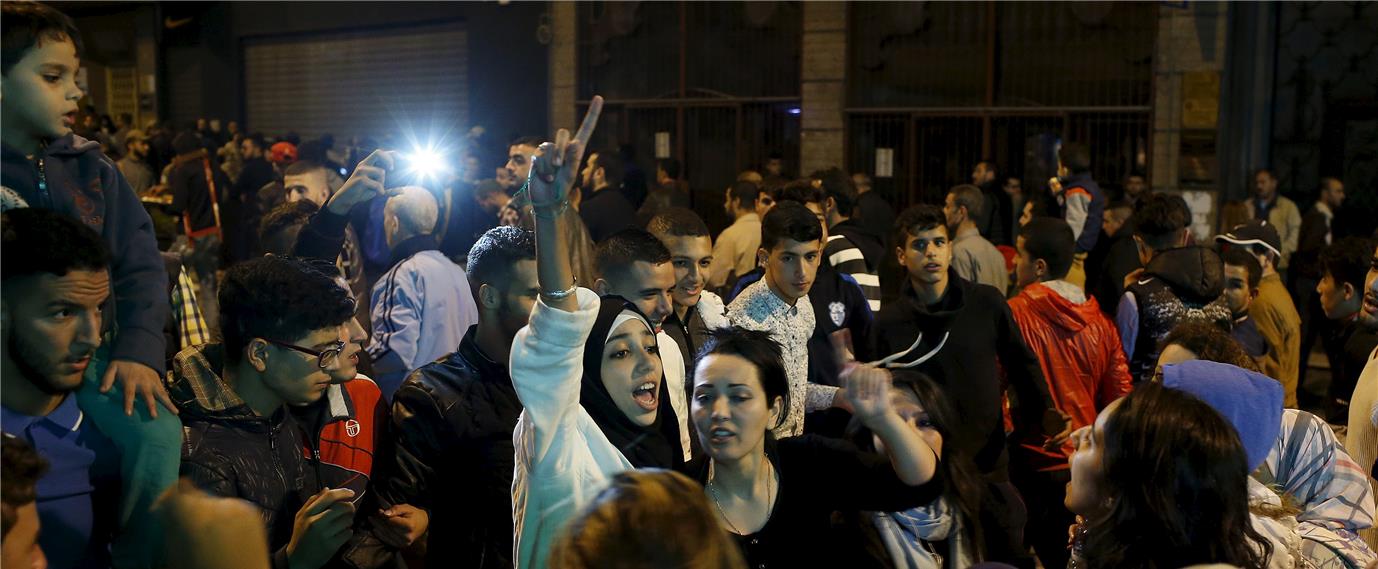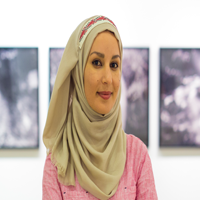عند الحديث عن تجربة الإعلام المحلي في شمال المغرب، وأقصد بالخصوص المواقع الإلكترونية، فإننا نتحدث عن تجارب شبابية طموحة تحاول أن تساير الإعلام الرسمي والمواقع الإخبارية الكبرى وتنقل واقع مجتمع محلي بحت بكافة خصوصياته، حيث يعكس القضايا والمشاكل التي تعاني منها مجتمعات شمال المغرب التي تختلف بطبيعتها الثقافية والاجتماعية عن باقي المناطق المغربية بفعل عوامل عدة، نذكر منها: قرب الشمال من الثقافة الإسبانية بحكم موقعه الجغرافي، كذلك آثار الاستعمار الإسباني التي ما زالت تظهر في الثقافة المحلية الشمالية والحياة المعيشية، ثانيا، خصوصية هذه المجتمعات المنغلقة. صحيح أنها محلّ التقاء ثقافات متعددة، ولكنها في العمق مجتمعات منعزلة ومنغلقة على نفسها.. مجتمعات لا تزال تخاف من الكاميرا التي عادت ما يربطونها بكشف المستور، يخافونها أكثر وهم يدخنون الكيف حاملين "السبسي". نذكر أيضا التفاوت الاقتصادي الحاصل في المنطقة وتتأثر فيه طنجة بشكل أكبر من غيرها من مدن الشمال.. فهو اقتصاد يتزايد بشكل رأسي وسريع بالمدينة، والطبقات الاجتماعية بدأت تتبين ملامحها، نضيف لذلك الهجرة الداخلية تجاه طنجة بحثاً عن العمل، وقريباً ستتحول إلى مقاطعة صينية. وقد خلق هذا العامل تحولات اجتماعية جديدة لم تخضع للدراسة السوسيولوجية بعد. كذلك يمكن أن نرى الاختلافات الثقافية والعرقية بين ما هو ريفي أمازيغي يعيش في منطقة لها تاريخها المختلف وإشكالاتها المختلفة وبين ما هو جبالي وعروبي وما يدخل تحت هذه التصنيفات من فروقات وتمايزات.
مع هذه التطورات المذهلة، فإن من يقرأ للإعلام المحلي السائد في هذه المنطقة، سيقف على عدة أسئلة مقلقة نوعا ما، أولها، هل إعلامنا المحلي في شمال المغرب قادر على أن يكون إعلاما مؤثرا بالمواطنين؟ وهل هو صوت لهم؟ هل هو قادر على أن يحتضن التطورات الحاصلة ويُعبر عنها بشكل صحيح بما يخدم المجتمع ويفيده؟ وما الذي يستفيده المواطن من إعلامه المحلي؟
هل الإعلام المحلي يعتبر قوة ضاغطة على صناع القرار ويشكل الرأي العام؟
وهل هذا الإعلام يُؤسس وفق أجندات تمويلية معينة؟ وهل أيضا يُؤسس وفق منهجية إعلامية معينة يتشارك فيها القائمون والعاملون بتلك المواقع داخل قاعات التحرير وما تعكسه عن مجتمعاتها؟ أم أنها مواقع برؤية فردية أحادية الجانب؟
وهل هو إعلام قادر على القيام بمبادرات مجتمعية من شأنها تطوير الواقع إلى واقع أفضل؟
أسئلة كثيرة وواجبة، وربما الإجابات عليها مُرّة قليلاً. إذا نظرنا إلى تلك المواقع وناقشنا استراتيجياتها في التحرير والرؤى التي تحملها، سنجد أولا أن من يُطلق هذه المواقع هم شباب إعلاميون وغير إعلاميين أي هواة.
أغلب هؤلاء الشباب يساهمون في نقل الأخبار من ميدانها، لا أبعد من ذلك، أما النقاش حولها يظلّ بعيداً، حيث لا تقف المواقع المحلية عند الظواهر المجتمعية وتحللها وتقدم منطقا معقولا للجمهور حولها، كما نجد أنها مواقع لا تتيح للجمهور النقاش على صفحاتها، وإن كانت تتيحه فهو ليس سهلا، ورغم توفرها على منصات التواصل الاجتماعي بالموازاة مع موقعها، ولكن الطبيعة الخبرية الإنشائية للمواضيع والجافة، الفارغة من الإبداع؛ تنفر الجمهور من الالتفات إليها.
وإن نظرنا إلى التكوين الأكاديمي لهؤلاء الشباب، فهم مكوَّنون في معاهد أو مراكز تقدم مناهج إعلامية نظرية وتطبيقية ليست بقوة معاهد وكليات الإعلام الرسمية، أو تدربوا في ورشات تدريبية في الصحافة وانضموا لفريق العمل، وظلّ معظمهم
يفتقر إلى المهارات والأدوات الإعلامية الجديد التي يستطيع من خلالها مواكبة الإعلام المتطور.
ورغم توفر بعض المؤسسات التي تقدم تدريبات بنفسٍ دولي، أي بخبرات دولية متنوعة، مشرقية وغربية، إلّا أن القارئ يتلقى صيغة التقارير والأخبار ذاتها، دون تطور أو تحسن في أسلوب تناول التقارير، وهذا يعود نوعاً ما إلى إرادة قسم التحرير بتلك المواقع. مثلاً، نشهد غيابا لبعض الأشكال الصحفية مثل التحقيقات والبورتريهات والأخبار الثقافية البحتة، وتقارير السوشيال ميديا وغياب الإفوغرافيك، وتغيب عنها الأشكال الجديدة إلى جانب غياب صحافة المواطن، إذ يفضلون شكل تقريري إخباري واحد والفيديوهات الصحفية، وهذا يعكس مدى ارتباط الصحفيّ بمجال الإعلام وتطوره واطلاعه على مصادر اخبارية أخرى والاستفادة منها وقربه من مجتمعه ومن قضاياه وأناسه.
نجد معظم هذه المواقع، ورغم التعقيدات التي أتى بها قانون الصحافة والنشر عام 2015 فيما يتعلّق بالصحافة الإلكترونية؛ مبنية وفق رؤية شخص واحد.. رؤية وحدوية فردية. من جانب آخر، لا تتحرك هذه المواقع خارج مساحة جغرافية ضيقة، كمساحة المدينة، فالعاملون بها عادة ما يغطون الأخبار وفق المتاح والسهل وحجم الاستفادة،رما يعني اختفاء روح المغامرة والشغف والذهاب بعيداً خارج المدن إلى القرى والبوادي وسماع الأصوات من هناك.
كما نجدها مواقع ممولة من طرف حزب ما كي تستطيع النهوض بنفسها، ولا نفترض فيها الاستقلالية التامة عن ذلك الحزب أو ذاك، وتظلّ الأخبار تتنفس نفساً حزبياً في معظم المناسبات.
تحاول المواقع المحلية في شمال المغرب، والتي تتخذ عادة أسماء المدن أسماء لمواقعها الإلكترونية أن تؤسس لإعلام مجتمعي بديل، وصوت لمدنها المهمشة في الإعلام المركزي- الرسميّ المتموقع في الرباط والدار البيضاء.
هذه المواقع الإخبارية المحلية ورغم محاولاتها لعكس صورة واضحة عن مجتمعاتها نرى فيها غيابا واضحا لمواضيع النساء والجندر وغياب خطاب المساواة والتشجيع على قيم المواطنة والديمقراطية.
مثلا، عندما يغيب خبر دعم ميشيل أوباما، زوجة الرئيس الأميركي السابق باراك أوباما، للتعليم في المغرب بملايين الدولارات عن هذه المواقع، يقيس لنا اهتمام هذه المواقع بقضايا التعليم وحتى الصحة وغيرها. فالمهم هنا بالدرجة الأولى ليس مبادرة ميشيل أوباما، بل التعليم ومشاكله في المغرب، ثم يمكننا أن نتحدث عن مبادرة السيدة الأولى لأميركا، ولكن غياب مثل هذا الخبر والتوقف على المشاكل العويصة التي يعاني منها التعليم يعني أن الإعلام المحلي لا يمارس دوره الحقيقي مجتمعياً.
فالصحفي العامل فيها لا يزال ينظر إلى المواضيع حتى البسيطة جداً منها أنها ليست مهمة طالما أنها متداولة وأصبحت معتادة. وهنا نرى أن هذا الإعلام غير قادر حتى اللحظة أن يتبنى حملات إعلامية توعوية يجعله شريكاً فعالا مع مؤسسات المجتمع المدني وحتى المؤسسات الرسمية من أجل النهوض بالمجتمع ومحاربة الظواهر التي تظهر فيه يومياً وتحوّله إلى مجتمع قاسٍ. على سبيل المثال، لا توجد مبادرات لمحاربة التحرش في الأماكن العامة، أو تخص الصحة والوضع الكارثيّ في المستشفيات أو مشاكل الطلبة في المدارس وانتشار الجريمة. فالإعلام المحلي ما زال غير متأصل وغير مدافع وغير قادر على التحدث بشكل جدي عن المشاكل والقضايا. وقد يتصف بأنه إعلام غير إيجابي وغير خدوم طالما يتناول مواضيعه بعناوين مثيرة أكثر مما يتناول أخبار مكافحة سلوكيات التحرش وغيرها، ويظل إعلاما ناقلا فقط لفعاليات المجتمع المدني من مهرجانات ومناسبات رمضانية وترفيه على حساب قضايا أكثر حساسية وعمقا تمّس الاهتمامات الأولية للمواطن.
ما زالت المواقع الإعلامية المحلية في منطقة شمال المغرب تقف على الدرجة الأولى.. ما زالت مبتدئة، ولا تتجرأ على التغيير، تعيش في منطقتها الآمنة، لا تدافع عن قضايا مجتمعها بقوة، تفتقر إلى الإحصائيات وتكتفي بالمعلومة السطحية، كما أنها غير معنية بسياسات جندرية حقيقية في هيكلتها، فالعديد منها يعمل فيها صحفيون شباب، ولا وجود لصحفيات إلّا قليلاً ويعملن مراسلات غالباً.
تحديات عدة تواجه هذه المواقع، التنافسية فيما بينها لا تحتكم إلى شيء، ورغم كل الملاحظات عليها إلّا أنها تبقى تجارب جيدة، تحاول أن تفرض نفسها، وتتولى صوت المواطنين وتتحدث عنهم وبأصواتهم. وتعتبر المواقع المحلية في مدينة الحسيمة والناظور نموذجاً لما حققته من متابعة في قضية مقتل بائع السمك محسن فكري، لكن ينقصها الدعم والتشجيع والتدريب لكي تكوّن مساحة أفضل من شأنها أن تقدم الخدمات للمواطنين ولا تقف فقط عند سماع أصواتهم.








































